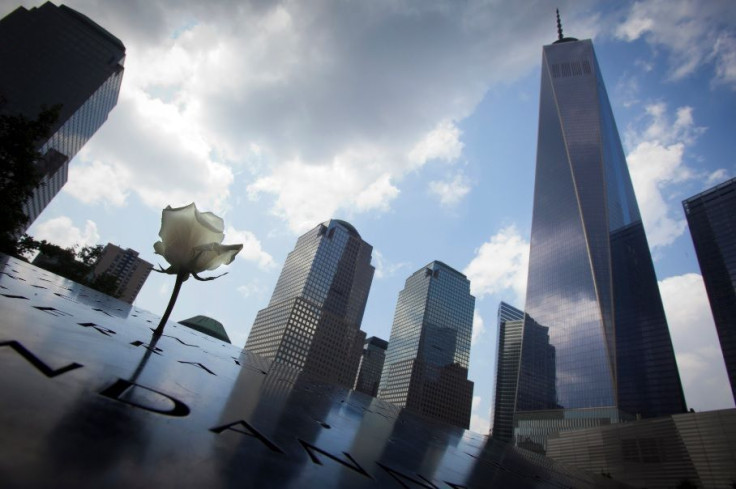9/11 Conspiracy Theories: Why Do People Believe In September 11 Conspiracies?

Why do people believe in 9/11 conspiracy theories? It’s a simple question to ask, but not necessarily an easy one to answer. Some people might scoff at those who believe in the outlandish theories, but experts said there are several underlying causes why conspiracy theorists are compelled to go against official reports from the government and mainstream media. For one, people don't want to trust the government. The rise of the Internet has also made it easier than ever to spread alternative suspicions about what “really” happened. What's more, once someone is convinced a conspiracy is truth, it's very difficult to change their mind.
There are dozens of conspiracy theories surrounding the Sept. 11, 2001 terrorist attacks. Some speculate inside traders knew about the attack beforehand. There are people who are convinced that bombs, not airliners, destroyed the Twin Towers. One of the more popular theories states that the U.S. government, not al Qaeda, was behind the attacks.
When people were asked in the 1950s if they could trust the government to do what is right, 75 percent of people said they did, said Robert Alan Goldberg, a history professor at the University of Utah and the author of “Enemies Within: The Culture of Conspiracy in Modern America.” But there has been a dramatic change since then because of events like the Vietnam War, the Watergate wiretapping scandal and President Bill Clinton's intern romance. Now, only a small minority of Americans trust the government to do what is right, Goldberg said.
Part of the reason people turn to conspiracy theories has to do with their lack of trust in the government, conspiracy theory expert Tim Melley, an English professor at Miami University in Ohio, said. People are aware of secretive government programs like the CIA and National Security Agency, but most of that knowledge comes from film and fantasy. “It’s often illegal to report on these kinds of activities,” Melley said. “The public is in this strange fantasy world where they know about clandestine activity, but we don’t know about it in the way we know about other things. It creates a suspicion about the government.”
There’s been a blur between what is fact and fiction because of Americans’ fascination with media, Goldberg said. "The greatest historians, if you will, are filmmakers," he said. "When the film blends with the history, the film becomes history."
The Internet has also helped conspiracy theories win over new followers. “It's easier to spread untruths,” said Scott Bigelow, a public communication specialist at the University of North Carolina at Pembroke.
It doesn't help that people often turn to the Internet for information that backs up their personal views, Goldberg said. “You go on to the internet to seek conformation,” he said. “Your views are amplified and validated.”
A conspiracy theory can help restore order after a seemingly senseless act occurs, said Kathleen Olmsted, a history professor at the University of California Davis. “The theories serve the psychological purpose of helping people to believe that there is order in the universe and that someone is in charge,” she said.
In the end, it's just too hard to stop believing, Goldberg said.
“They look for confirming information or they interpret information in a confirming way," he said. "They lose the ability to find the facts that might trip it up and either disguise them, ignore them or argue those facts are planted. Once you believe in a conspiracy theory, the condition is hard to break.”
Follow me on Twitter @mariamzzarella
© Copyright IBTimes 2024. All rights reserved.






















